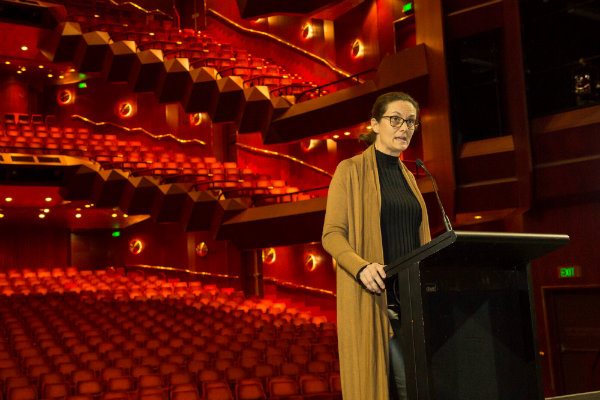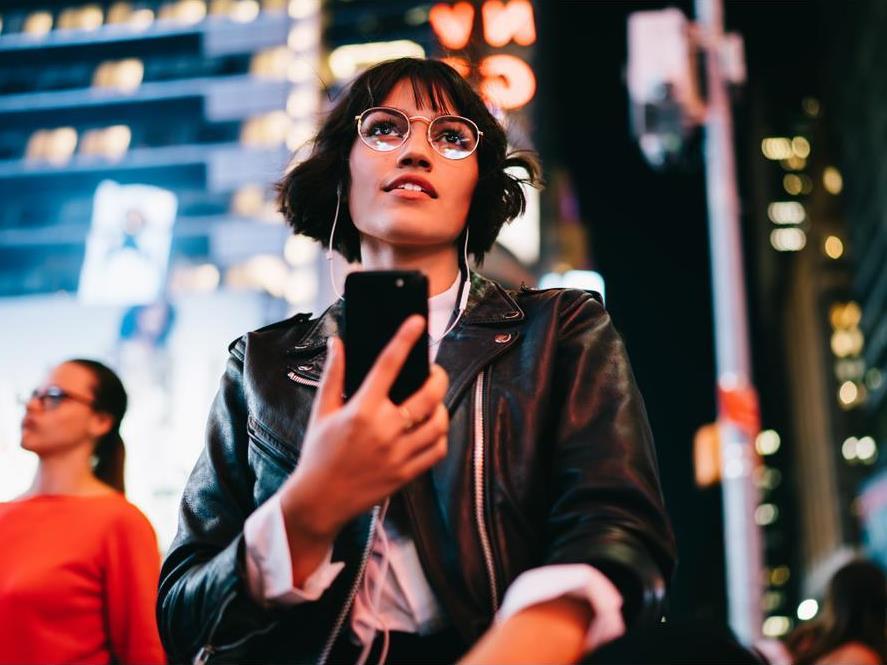Image via Shutterstock
Access to mental health support for the performing arts sector just got significantly easier thanks to The Arts Wellbeing Collective’s latest initiative.
The Support Act Wellbeing Helpline is a free, confidential telephone service staffed by mental health professionals. Operating 24 hours a day, 365 days a year, it can be accessed by anyone in the performing arts sector who needs to discuss their mental health – from anxiety and substance abuse issues, to workplace tensions and the loneliness that sometimes comes with being on tour.
‘The Helpline has been created in response to what we believe is a really solid need across the sector. It is absolutely confidential, and is available to anyone who works in the Australian performing arts industry,’ said Claire Spencer, CEO, Arts Centre Melbourne.
‘I would really encourage people, if they feel that a conversation with a professional clinician who really understands the challenges of our industry is going to be of assistance to them, to please, please call.’
The clinicians staffing the Helpline have practical insights into the arts sector’s specific needs and challenges, Spencer continued.
‘The Arts Wellbeing Collective team has worked really closely with these clinicians to ensure that they have an understanding of the very unique challenges that are faced by performing arts workers. We’ve also tried to source experienced clinicians that have actually had experience of working in the industry as well, because it is a funny old industry, as we all know,’ she said.
‘The usual advice you get around early nights and healthy diets and spending more time with friends and family – we know that can’t always be applied in the performing arts. So to have a team of experts who have a deep understanding of that, and to make sure that people are really being heard by a professional who understands the particular issues they are facing – that’s the really exciting thing about this.’
Already operating, and managed by music charity Support Act, the expansion of the Support Act Wellbeing Helpline pilot program to include everyone in the performing arts sector is a logical next step for The Arts Wellbeing Collective, an Arts Centre Melbourne initiative comprised of a consortium of arts and cultural organisations and established in 2016.
‘The whole ethos of The Arts Wellbeing Collective is about being industry-specific and about partnership and collaboration. So the Helpline was just a natural thing to partner on,’ Spencer said.
‘The issues are similar and we felt that having a helpline that was specifically for people who work in live performance – whatever their role is, whatever their gift is – to us it just made logical sense.’
A TELEPHONE HELPLINE FOR EVERYONE
While the Helpline will be broadly accessible, it’s expected the service will be especially appealing for independent theatre makers and members of small to medium companies whose organisations lack the capacity to develop Employee Assistance Programs (EAP) of their own.
‘It’s for people across the sector – those who are on the stage, those who are backstage, those that work in administration. This is a challenging industry whatever aspect you’re involved in, so we didn’t want there to be any judgement about whose needs are greater – we believe there is a need for this sort of service right across the sector, so let’s address that need,’ Spencer explained.
Touring artists are also expected to access the telephone Helpline, as well as individuals working in a freelance capacity who are unsure of whom to turn to.
‘In the same way that we talk about physical OH & S conditions, I feel quite strongly that it’s our responsibility as leaders to create an environment where people can feel psychologically safe to talk about their issues,’ said Spencer.
‘But I do think there will be cases where people won’t feel comfortable to do that, or they may not be in an organisation that has an EAP. So the Wellbeing Helpline is designed to scoop up those people so that they’ve got that same level of support that they can access at any time, and support that is tailored to the industry that we work in.’
EXPANDING THE PROGRAM
Initially run as a pilot program, The Arts Wellbeing Collective offers a range of resources, workshops and opportunities designed to support the development of mentally healthy creative workplaces, of which the Wellbeing Helpline is the latest in a series of initiatives. Other recent projects include Your Pocket Guide to De-Role, offering a range of tips to help actors get out of character once they’re off stage, and Tour Well, a detailed guide to thriving on the road.
‘What we’re finding is that each of the pieces that we’re putting out is resonating strongly with the part of the sector that it’s designed to assist. So there will be more of those sorts of research and collateral that are being developed – we’re working on one at the moment around festivals, for instance, which again are a very distinct kind of environment to work within, with very distinct challenges – in the same way that touring is, but it needs quite a different response,’ Spencer explained.
‘I think we’re starting to see the tapestry of The Arts Wellbeing Collective now really coming together – a combination of the in-person workshops, discussion groups and the online materials, and now these new, very bespoke pieces of research and collateral to address very specific issues – and then bringing in the Helpline to compliment that as well. So it’s a tapestry – that’s how we like to think of it.’

Claire Spencer, CEO, Arts Centre Melbourne, at the launch of the Support Act Wellbeing Helpline. Photo credit: Mark Gambino.
While the Collective is comprised of Victorian organisations, the Support Act Wellbeing Helpline will be accessible nationally. It’s the latest in a series of programs which have gained international attention.
‘We’ve talked about The Arts Wellbeing Collective overseas a couple of times now, to international audiences, and each time we’ve done it there has been global interest in what we’re doing – because there isn’t a model like this anywhere else in the world, where it’s really tailored to the sector and owned by the sector,’ said Spencer.
In the UK, the Royal Albert Hall recently began examining The Arts Wellbeing Collective model in order to determine whether it might work in Britain.
‘We’re supporting them in that, and my sense is that it will be something that develops into something very interesting for the United Kingdom. So for us now, we have to think about our role as the trailblazers in this space, to make sure that wherever the model is rolled out nationally or even internationally, it’s done in a way that’s thoughtful and that’s tailored to the particular environment in that particular country.
‘We spent a lot of time at the beginning of The Arts Wellbeing Collective really getting a deep understanding of the issues in Victoria, so that we could tailor something to address those issues specifically.
‘It may be different overseas – it may be different in different markets – so we want to make sure that it’s done well and the impact it has, wherever it’s rolled out, is positive,’ Spencer concluded.
The Support Act Wellbeing Helpline is accessible 24 hours a day, 365 days per year by calling 1800 959 500 within Australia. Skype sessions are also available. Learn more at www.artswellbeingcollective.com.au.





